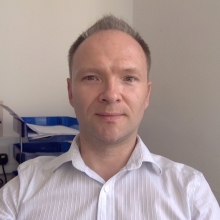

Ambient Assisted Living Research
Independence and wellbeing through the use of technology in daily life
Ambient Assisted Living (AAL) is concerned with using various technological solutions to allow people with additional care needs to live independently in their preferred environment. The NHS and social services are struggling and the pressure on the statutory services will continue increasing as the population ages. Therefore, solutions that can help manage more conditions in the home, reduce hospital stays, and promote wellbeing will be crucial for addressing the impending care crisis.
There are several categories of health technologies utilised in AAL systems, including wearable sensors, smart everyday objects, environmental sensors, and social assistive robots. This work is closely related to research in smart environments, which utilise a range of interconnected sensors, IoT devices, and intelligent systems to monitor and adapt to the needs of occupants. These environments can be homes, healthcare facilities, or public spaces.
The focus of our research is on monitoring the performance of Activities of Daily Living (ADLs) and ensuring that they are being undertaken to promote wellbeing as well as safety. The aim is for AAL systems to be able to support users in undertaking ADLs (e.g. through prompts or reminders), intervene if an unsafe situation is occurring, alert formal and informal carers of emergencies and provide an on-going assessment of wellbeing trends to carers.
Our research covers the following topics
- Computer vision for AAL
- Data fusion and multi-modal learning
- The role of edge computing in AAL
- Assistive technologies in the workplace
- Acceptability of AAL technologies
Methods and facilities:
Our research makes use of various sensor technologies, AI, and data science. We are particularly interested in the use of non-contact sensing, such as video and sound.
We strive to work closely with potential end users and hardware providers to ensure that AAL solutions are address the real needs of users and are commercially viable. Some of our contacts include charitable organisations, such as Autism Hampshire, Public and Patient Involvement group at the Portsmouth University Hospitals Trust, Housing Learning and Improvement Network, as well as smart home and care technology providers such as LightwaveRF, Amba Health and Care.
Our research facilities include:
- Port-Eco House, which is a living lab allowing for evaluation of AAL technologies in realistic residential settings
- IBM PowerAI Vision system with 2 Nvidia Tesla V100 GPUs for advanced image processing
Collaborations and funders
Our first work in this field was to set up the National Database of Telemedicine for the Department of Health in the late 1990s – this subsequently became the national Telemedicine and E-health Information Service, run in conjunction with The British Library.
More recently, we have worked with East Hampshire District Council to help them regenerate the towns of Whitehill and Bordon on healthy living principles.
We've worked with companies including PassivSystems Ltd, an intelligent energy software solutions company, Smart-e Ltd, a manufacturer of audio visual equipment and Xim Ltd, a research and development company creating innovative digital health applications. We also have strong links to patient and community groups through the University of Portsmouth Ageing Network (UPAN) and Portsmouth City Council.
Recent project have received funding from the South East Health Technologies Alliance (SEHTA), East Hampshire District Council, and several Knowledge Transfer Partnerships (KTPs) supported by Innovate UK.
Discover our areas of expertise
Ambient Assisted Living is an area of expertise in the Health and Wellbeing Technologies research area. Explore the other areas of expertise here.
Health and Wellbeing Technologies
We're improving the design of computer systems and wellbeing services to make the delivery of healthcare more efficient and cost-effective, and we're exploring how technology can influence lifestyle choices and reduce health risks.

Clinical Outcome Modelling
We're developing and evaluating mathematical and computer models, and collaborating with the NHS, to help make accurate healthcare predictions using health data science. Explore our clinical outcome modelling research.

Applied Health Informatics
We're researching the effective design and use of IT in health and social care to improve how practitioners communicate with patients and to promote patient wellbeing

Artificial Intelligence and Data Science
Our research is exploring practical applications of AI and data science for solving business problems and societal challenges

Research groups
Centre for Healthcare Modelling and Informatics
We're working to develop technology that makes work more efficient for the organisations that form the National Health Service (NHS).
Interested in a PhD in Health Informatics?
Browse our postgraduate research degrees – including PhDs and MPhils – at our Health Informatics postgraduate research degrees page.

